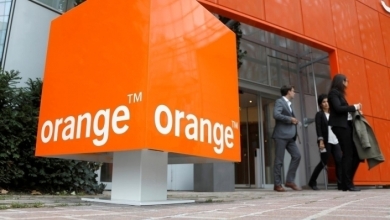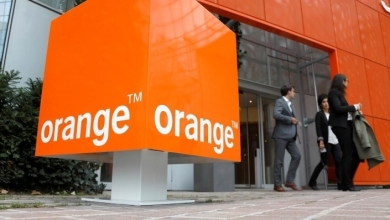
Last Friday, IT Europa visited Orange Business in Marseille, France to find out its latest take on the IT and communication services market.
We visited the Orange Cyberdefense Campus in Marseille, spoke to the young security operations centre (SOC) team there, and then visited the 67,000-capacity Orange Vélodrome to talk stadium technology, as the venue hosted the sell-out French rugby union cup final between Toulouse and Bordeaux.
The Cyberdefense campus helps serve the needs of local, national and international organisations, with Orange employing 3,000 security experts globally. The security unit has seen big growth in recent years, as new cyber threats rear their ugly head.
Alexandre Gazzola, Mediterranean director for Orange Cyberdefense, said: “While the security challenges are increasing, AI can make an important contribution in threat detection and responsiveness.” We were given a demonstration in how virtual reality was being used to improve maritime vessel data security, for instance.
In Marseille, Orange Cyberdefense has around 100 experts to meet the growing needs of public and private companies. The campus offers surveillance, protection against cyber threats, and crisis management solutions. It also provides cyber risk training and a demonstration space for attacks.
Penetration testing for clients is a big growth area for Orange Cyberdefense, and its demo suite in Marseille is used to convince potential clients of the threats out there. We were shown how quickly a network could be compromised and infected, through a rogue USB phone charging cable, inadvertently plugged into a single remote laptop by an employee.
Speaking to the staff at the Marseille SOC, it was clear that data security was an appealing career for young people in France, including women. While the stereotypical image of corporate data security experts is of older, sometimes socially awkward men, the average age of the Marseille team is 27, and they were keen to talk...but off the record, of course.
We then drove through the match day traffic to the Orange Vélodrome. The national rugby final is usually played at the national stadium in Paris, but because of the Olympics starting this month, it was switched to Marseille.
In its extensive private box facilities before the match, Orange Business demonstrated how it enhanced the experience of game professionals during major events through 5G connectivity, including 5G network and AI serving photographers, and 5G remote production as a tool to capture new market share.
It also showed how it could improve energy efficiency in buildings through smart building solutions, including optimising energy consumption in a stadium's high-density Wi-Fi infrastructure, and transforming a building into a smart building without adding new sensors.
We sat down with Laurent Godicheau, director of strategy, partnerships and sustainable development at Orange Business, to see how he saw the market developing, and how Orange could advance its strategy of moving from being a telco to a “techco”, something that most telcos are trying to do these days.
“As more 5G standalone [pure 5G networks without 4G] networks are deployed, the 5G use cases will grow, with private 5G network at large organisations a big growth area,” said Godicheau.
Asked about the 6G networks now in development, with the first commercial 6G networks expected to be turned on next year in some parts of the world, Godicheau wasn’t particularly excited. “At Orange, we no longer talk about the ‘Gs’, and clients want use cases, not technologies. Customers are not asking us about 6G.”
Edge networking and data processing can bring data closer to customers, and is particularly useful for those organisations that need low latency connectivity and quicker results from their data analytics queries. Godicheau said more edge deployments could also help sustainability goals, by taking the pressure off hard-working and power-hungry GPUs in distant hyperscale data centres.
In the business communications space, Orange Business faces up against the likes of Telefonica Tech, Deutsche Telekom’s T-Systems, and BT, in terms of European-based telco rivals. “We see BT, Verizon and NTT Data as our main global rivals in the market, because of our multiple international locations.
“We are helped in the market through our private cloud offering, with the help of our partners in delivering it, including HPE and VMware,” Godicheau said.
On the ongoing controversy around VMware, since it was acquired by Broadcom at the end of last year, and Broadcom’s decision to slash partner numbers and redraw customer contracts, Godicheau didn’t see much change for Orange. “VMware customers cannot simply run away from them, as the technology is pivotal. And we will carry on as a key VMware partner.
“Orange will continue transforming from a telco to a cloud, security and connectivity services company, creating value for our partners, and moving towards sustainability.”
It was a shame Bordeaux were demolished 59-3 by previous 22-time cup winners Toulouse.


